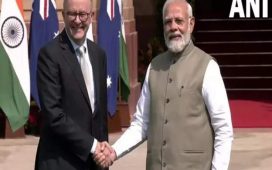“Our effort is to move out of that mindset. Our effort is that every product that is made in India will be a high-quality product. When a consumer picks up a product will be reassured of high quality and will not have to look at other products for ‘x’ quality. Policymaking in India is moving in that direction,” he said.
He also said that standards are like patents and he cannot but agree with what the chief of the Bureau of Indian Standards (BIS) Pramod Kumar Tiwari looks at standards as a passport to trade.
Those who control standards and have the ability to maintain high standards are the ones who will control the markets, prices and processes and become manufacturers and innovators of tomorrow, he added.
The minister mentioned that India is making rapid strides to encourage more consumers to become demanding consumers, asking for high-quality goods and services. At the same time, a reasonable time is being given for producers to adopt the new quality standards and ensure India is recognised as a provider of good quality products.
“We in government only desire to act as a facilitator, not as a disruptor of your process. We don’t want to be a cause of any pain or agony, but we want to handhold and support your efforts. We want India to compete with the rest of the world on equal terms,” he noted. Further, the minister said that quality is not something that comes out of pressure or from quality control order. “It should come out of the personal conviction of each and every stakeholder,” he said. Stating that 8 billion consumers in the world have the right and desire to have a better quality of goods/services, the minister called for balancing local needs while moving towards the global standards which are acceptable around the world so that India gets out of the mindset of two standards of everything that it produces. He also stressed on the need to progress towards world-class standards, particularly in less developed and developing countries in a calibrated manner but certainly with a collective commitment to maintaining high standards in goods and services for the people of the world.
There are opportunities for countries that produce quality goods and services. “We have a lot to learn from the developed world, we have a lot to support other emerging economies and less developed countries,” he said, adding that if everyone works as a team, standards will enable holistic development and a sustainable future of the world.
He suggested that the G20 Standards Dialogue should be a regular engagement and help those countries which do not have a robust system.









